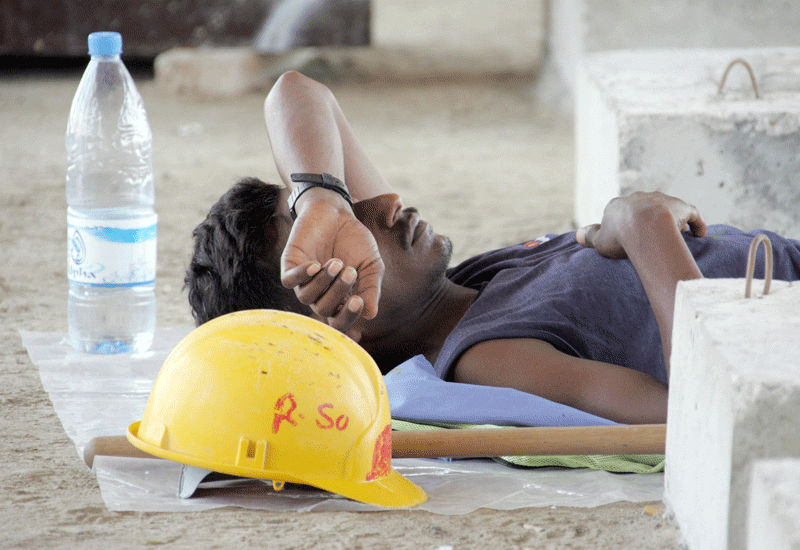Rabiul Alam, Dhaka
COVID-19 pandemic appeared as a black swan in the life of South Asian people like other parts of the world. Like other sectors, education was the sector worst hit by the pandemic. For health safety, every government of South Asian countries had to shut down all educational institutions in their respective countries for one year to one and a half years. Time was ticking away. Schools, colleges, and universities had to find an online education system to keep educational activities vibrant. From experiencing an absolute halt in educational activities to the hybrid model of learning, people coped up with the new normal. The task of adapting to this transformation was not easy for them. However, each of the educational institutions including teachers and students faced different problems including access to net speed, diverse backgrounds, and geographical locations in online education. Apart from these problems, online education can be a panacea only when physical learning is not possible in any way.
 Participating in an online education dialogue titled ‘Restart Education: Experiencing the Education Transformation,’ jointly organized by the Friederich Neumann Foundation for Freedom (FNF), South Asia and Center for Civil Society (CCS), on November 18, Zubayer Hossain, a school student from Bangladesh, Krishank Malik of Arya Global Group of Institutes, Tashi Chophel, a college student from Bhutan and Pakistani school teacher Raheela Mahjabeen Kausar shared the challenges faced and initiatives took their respective governments to keep studies vibrant during COVID-19 pandemic. Almost all of them agreed that online classes couldn’t replace physical classes. The dialogue was moderated by Roshan Gandhi, City Montessori School, India.
Participating in an online education dialogue titled ‘Restart Education: Experiencing the Education Transformation,’ jointly organized by the Friederich Neumann Foundation for Freedom (FNF), South Asia and Center for Civil Society (CCS), on November 18, Zubayer Hossain, a school student from Bangladesh, Krishank Malik of Arya Global Group of Institutes, Tashi Chophel, a college student from Bhutan and Pakistani school teacher Raheela Mahjabeen Kausar shared the challenges faced and initiatives took their respective governments to keep studies vibrant during COVID-19 pandemic. Almost all of them agreed that online classes couldn’t replace physical classes. The dialogue was moderated by Roshan Gandhi, City Montessori School, India.At first Raheela Mahjabeen Kausar pointed out her experiences in the transformation, the methodology teachers used in online education, and problems teachers faced while they delivered lectures online. She said that online teaching was a little bit different because students were not very used to it. They have been an experience of face-face learning. They are just trying to join online classes. Teachers were also upset because they had no previous experience in teaching online. They were not used to it as well at first.
Mentioning different methodology used in online learning she added that teachers didn’t have proper net connections and devices to go on online education. Later on, everybody tried to cope up with the situation because they wanted to learn. The methodology was totally different in online education. While teachers would give lessons physically in the classroom, they were more attentive compared to online classes. In online classes teachers have to give more effort. In face-to-face teachers only deliver lessons but in the case of online, they have to prepare PDFs and send the materials to students and keep all devices well connected as well.
Replying to a question over the preference of online learning from students’ perspective, Zubayer Hossain, a school student from Bangladesh, figured out that he prefers a face-face education system as he and some of his fellows faced lots of problems attending online classes. He prefers school attending because of the attention teachers get from the students physically.
Though Zubayer is not opposed to virtual classes, as he also attended many virtual classes in this pandemic situation. But he prefers more physical classes as students can interact with teachers physically as well as other class teachers and seniors. So, the interaction is easier and more fruitful than virtual interaction.
He added that there are some problems in virtual classes. Net connection issues are too big a problem. Again, some students are just attending, not learning. They switched off their microphone and video camera… do fun, eating and bla bla… which are not possible in physical attending school.
However, Zubayer also mentioned that some of his friends prefer virtual classes as virtual classes save time. But most of his friends do not have good smartphones, moreover, they do not possess a conducive environment for learning. But in the physical classes, these are not issues.
Acquiescing with Zubayer, Tashi Chophel, another college student from Bhutan, said that he and his peers face lots of difficulties in online classes and online study. So, they very much prefer a face-to-face education system. And their teachers also prefer it. As Zubayer said before, there are prevailing net connection problems and it’s a big hindrance to joining online classes.
Shedding light on complexities in an online class, Tashi shared his online class experience that online classes have much more complexity than face-to-face education processes. And in the face-to-face education system, it is easier to connect with friends and express more emotion rather than in online classes. Many of his friends are frustrated with online classes in this pandemic situation in many ways. Many of them have a lack of knowledge in terms of using ICT tools. Moreover, not everyone shares their opinions which they usually do in the physical classes.
As an education analyst, Krishank Malik said that previously teachers focus only on teaching. But now they focus on the learner’s self-learning, self-study. As they are connected to technology, they have to know how to use tools, how to operate those technologies to join the class. So nowadays it’s quite a different teaching and learning process from the previous.
Suggesting teachers, he said that the teachers have to modify the style of teaching, content, and syllabus. He also talked about the online assessment. He thought that there are a huge number of trust issues when it is time for online assessment and testing. The students may copy. So, the teacher can test them with an open-book assessment. For example, they look at textbooks and find the answer. Thereby at least they can learn. Malik also talked about the child’s perspective. The children are benefited from some technical learning. They can learn typing, making pdf, etc.
















